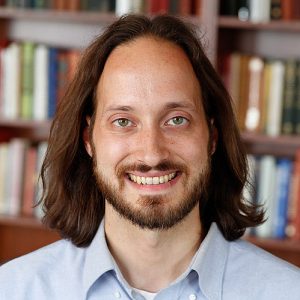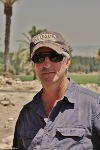Boldt Chair of Humanities Lectures
Fall 2016
The Study of Material Culture in the Humanities
Material Culture in the Humanities: Part I
Thursday, September 15, 2016 at 11:20 AM
Buntrock Commons, Black Ballroom
Jeff Sauve and Gary DeKrey, St. Olaf College
|
|
|
This is the first installment of the Fall 2016 Boldt Chair of Humanities Luncheon-Seminar on the Study of Material Culture in the Humanities. Gary DeKrey (History and College Archives) and Jeff Sauve (College Archives) will offer an illustrated introduction to the history and mission of the St. Olaf College archives and of the Archives of the Norwegian-American Historical Association, along with a display of some of the more precious items in the collection.
All members of the St. Olaf community are welcome. Please e-mail Steve Reece if you wish to participate.
Material Culture in the Humanities: Part II
Thursday, September 29, 2016 at 11:20 AM
Buntrock Commons, Sun Ball Room
Vanessa Rousseau, Macalester College

This is the second installment of the Fall 2016 Boldt Chair of Humanities Luncheon-Seminar on the Study of Material Culture in the Humanities. Vanessa Rousseau, Professor of Art and Art History at Macalester College and President of the Minnesota Chapter of the Archaeological Institute of America (and Visiting Professor of Art at St. Olaf next Spring), will offer an illustrated presentation “The Politics of Plunder: Looting, the Antiquities Trade, and the Destruction of Cultural Property.”
For the first time ever, the International Criminal Court at the Hague is prosecuting the destruction of cultural monuments as a war crime. While looting and the destruction of material culture are generally decried as criminal acts today, there is a much longer tradition of plunder and destruction as an accepted (or at least expected) casualty of war. This talk will consider history of looting and the destruction of art, archaeology and cultural property from antiquity to the present. After putting the current assault on cultural heritage into historical perspective, we will consider the mercenary and ideological motivations for looting and destruction, as well as the challenges and potential solutions to this growing problem.
Vanessa Rousseau teaches the art and archaeology of the Ancient-Medieval Mediterranean at Macalester College and elsewhere in the Twin Cities. She also works on interdisciplinary object authentication, exhibitions and looting and the antiquities trade. She is president of the Minnesota chapter of the Archaeological Institute of America, Antiquities Consultant for the Weisman Art Museum, and the Specialist for Roman decoration with the Archaeological Exploration of Sardis in Turkey.
All members of the St. Olaf community are welcome. Please e-mail Steve Reece if you wish to participate.
Material Culture in the Humanities: Part III
Thursday, October 20, 2016 at 11:20 AM
Buntrock Commons, Undset Room
Austin Mason, Carleton College

This is the third installment of the Fall 2016 Boldt Chair of Humanities Luncheon-Seminar on the Study of Material Culture in the Humanities. Austin Mason, Robert A. Oden Jr. Postdoctoral Fellow for Innovation in the Liberal Arts and Digital Humanities in History at Carleton College, will offer a presentation on Digital Humanities and Archaeology: Anglo-Saxon Material Culture.
All members of the St. Olaf community are welcome. Please e-mail Steve Reece if you wish to participate.
Material Culture in the Humanities: Part IV
Thursday, November 3, 2016 at 11:20 AM
Buntrock Commons, Viking Theatre and Foyer
Eric Cline, George Washington University

This is the fourth installment of the Fall 2016 Boldt Chair of Humanities Luncheon-Seminar on the Study of Material Culture in the Humanities. Eric Cline, Professor of Classics and Anthropology at George Washington University, will offer an illustrated presentation “Excavating Armageddon: New Discoveries and Old Debates at Megiddo.”
Eric Cline is an archaeologist and ancient historian by training, and he specializes in Biblical archaeology, military history, and the international connections between ancient Greece, Egypt, and the Near East. He is a Pulitzer Prize nominee, a National Geographic Explorer, a Fulbright scholar, and an award-winning teacher and author. He is also co-director of the excavation of Tel Megiddo in northern Israel.
The End Time. Armageddon. Students of the Bible know Megiddo as the place where the cataclysmic battle between the forces of good and the forces of evil will unfold. Many believe that this battle will take place in the very near future. But few know that Armageddon is a real place—one that has seen more fighting and bloodshed than any other spot on earth. The name Armageddon is a corruption of the Hebrew phrase Har Megiddo, meaning “Mountain of Megiddo.” Professor Cline will include an overview of the renewed excavations at the site and highlight some of the discoveries made during the 1994-2014 excavation seasons. Unresolved questions, including the palace, stables, and other ruins initially attributed to King Solomon’s building activities, and the extent of King David’s involvement at the site, will be re-examined and discussed in detail, as will some of the numerous battles that have already been fought at Armageddon.
All members of the St. Olaf community are welcome. Please e-mail Steve Reece if you wish to participate.
Material Culture in the Humanities: Part V
Thursday, November 3, 2016 at 7:00 PM
Tomson Hall 280
Eric Cline, George Washington University
This is the fifth installment of the Fall 2016 Boldt Chair of Humanities Seminar on the Study of Material Culture in the Humanities. Eric Cline, Professor of Classics and Anthropology at George Washington University, will offer an illustrated presentation “Jerusalem Besieged: 4,000 Years of Conflict in the City of Peace.
Eric Cline is an archaeologist and ancient historian by training, and he specializes in Biblical archaeology, military history, and the international connections between ancient Greece, Egypt, and the Near East. He is a Pulitzer Prize nominee, a National Geographic Explorer, a Fulbright scholar, and an award-winning teacher and author. He is also co-director of the excavation of Tel Megiddo in northern Israel.
Jerusalem, whose name to some means the ‘City of Peace,’ has been anything but peaceful during the past four millennia. There have been at least 118 separate conflicts in and for this city since 2000 BCE — conflicts which ranged from local religious struggles to strategic military campaigns and which embraced everything in between. Jerusalem has been destroyed completely at least twice, besieged 23 times, attacked an additional 52 times, captured and recaptured 44 times, been the scene of 20 revolts and innumerable riots, had at least five separate periods of violent terrorist attacks during the past century, and has only changed hands completely peacefully twice in the past 4,000 years. Many of these conflicts left evidence in the archaeological record and recent discoveries have shed new light on many of these successive struggles, including those involving Egyptians, Canaanites, Israelites, Jebusites, Neo-Assyrians, Neo-Babylonians, Greeks, Romans, Persians, Moslems, and Crusaders. This study of 4,000 years of conflict in a single city illustrates how archaeology, politics, and nationalism are frequently linked in the troubled environment of the Middle East today, especially when ancient conflicts and their archaeology are used as propaganda by modern military and political leaders.
All members of the St. Olaf community are welcome. No RSVP necessary.
Boldt Chair of Humanities Lectures
Spring 2016
History of the Book as a Material Object
History of the Book: Part I
Thursday, April 7, 2016
St. Olaf College Professor of Classics Steve Reece offered an illustrated presentation on the origin and development of the book as a material object in Greek and Roman antiquity.
History of the Book: Part II
Thursday, April 14
St. Olaf College Professor Emeritus of Chinese and Asian Studies Richard Bodman offered an illustrated presentation on the origin and development of the book in the East (China, Korea, and Japan).
History of the Book: Part III
Thursday, April 21
St. Olaf College Professor Emeritus of English Jonathan Hill offered an illustrated presentation on the book as material object in 18th and 19th century Britain.
History of the Book: Part IV
Thursday, April 28
Mark Dimunation, Chief of the Rare Book and Special Collections Division at the Library of Congress, offered an illustrated presentation on the impact of the Gutenberg printing press on Medieval Europe.
History of the Book: Part V
Thursday, April 28
Mark Dimunation, Chief of the Rare Book and Special Collections Division at the Library of Congress, offered an illustrated presentation on the reconstruction of the personal library of Thomas Jefferson that composed the first “Library of Congress”.
History of the Book: Part VI
Thursday, May 5
Roberta Lembke, Aimee Brown and Mary Barbosa from St. Olaf library, offered a presentation on the current status and future of the book as a material object.
Boldt Chair of Humanities Lectures
Fall 2015
The Study of Material Culture in the Humanities
Luncheon Lecture I
Thursday, September 17
Several faculty members in the Humanities will be offering presentations on objects of material culture in their fields of study that encapsulate or epitomize a particular period of history.
Luncheon Lecture II
Thursday, October 15
St. Olaf College Professor of Classics and Boldt Chair of Humanities Steve Reece, offered an illustrated presentation on some recently discovered archives of ancient letters from England, Judea, and Egypt.
Luncheon Lecture III
Thursday, November 5
St. Olaf Associate Professor of History Tim Howe, offered an illustrated presentation on the St. Olaf archaeological excavations at Antiochia ad Cragum in Turkey.
Boldt Chair of Humanities Off-Campus Excursion Series
Saturday, April 9, 2016
John Hale (University of Louisville) presented, “CLEOPATRA: An Archaeological Perspective on Egypt’s Last Pharaoh,” in the Pillsbury Auditorium at the Minneapolis Institute of Arts.
Saturday, October 24, 2015
Nassos Papalexandrou (University of Texas) presented, “Monsters and Vision in the Preclassical Mediterranean: The Case of the Orientalizing Cauldrons,” in the Pillsbury Auditorium at the Minneapolis Institute of Arts.
Other Events
2016 Honors Day Humanities Book Celebration
Friday, May 6
A celebration of recent publications by St. Olaf faculty in the Humanities. Sponsored by the Boldt Chair of Humanities, the Associate Dean of Humanities, and the St. Olaf Library.
Boldt Chair of Humanities Film Festival Series
Interim 2016
Each Thursday evening during the Interim, at 7 pm in Viking Theater, St. Olaf College Professor of Classics Steve Reece hosted ‘The Many Faces of Homer’ Film Festival
January 7th: In Search of the Trojan War (Michael Wood, 1985).
January 14th: Troy (Wolfgang Petersen, 2004)
January 21st: The Odyssey (Andrei Konchalovsky, 1997)
January 28th: Sommersby (Jon Amiel, 1993).

